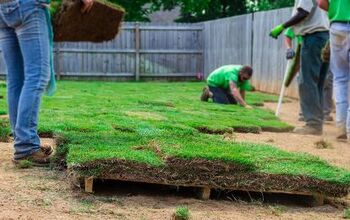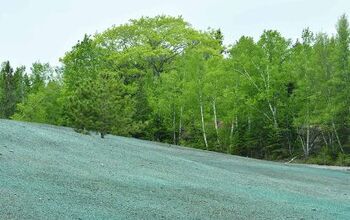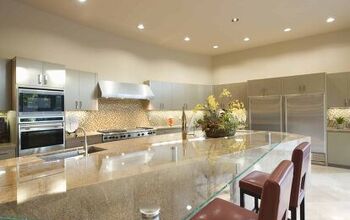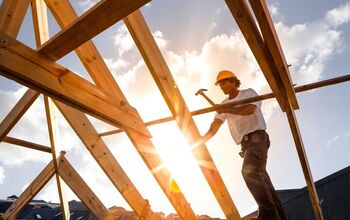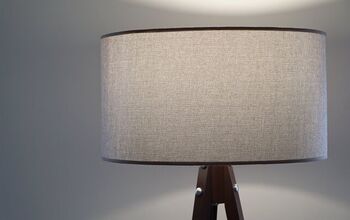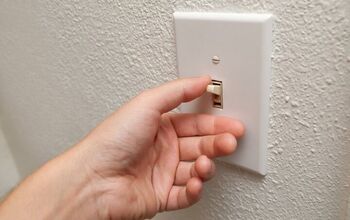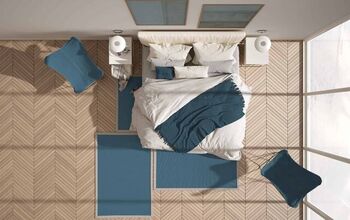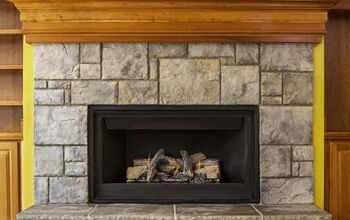How Much Does Rebar Cost? (Price Per Foot & Per Project)

Building your home often means taking on expenses that you might not have seen coming. For example, while laying a foundation or building new walls, you might have assumed that concrete will suffice. More often than not, however, you need to support those concrete structures with rebar.
Rebar is often the unsung hero in numerous construction projects completed in and around the home. Builders rely on rebar to hold concrete structures together and to prevent them from falling apart easily. When the rebar used in a project is doing its job properly, you will not be made aware of its presence.
The average cost of rebar is $2.30 per foot. Size is a major factor in determining rebar prices so make sure you’re picking the right one for your project. You can also buy rebar in bulk if it will be used extensively throughout your home. Expect to pay $1,450 if you’re looking to purchase a ton of rebar.
Reinforcing certain elements of your home will be crucial if you want it to stand strong for as long as possible. Using rebar as your main form of reinforcement is a good idea. Find out how much you’ll have to pay to use rebar in your home by reading the rest of this article.
Do You Need a Foundation Contractor?
Get free, zero-commitment quotes from pro contractors near you.

Cost of Rebar by Size
| Rebar Size | Cost Per Foot |
| #3 | $0.75 |
| #4 | $1.15 |
| #5 | $1.55 |
| #6 | $2.25 |
| #7 | $3.20 |
| #8 | $4.70 |
Whenever you’re building a concrete structure that has to support weight, you should consider strengthening it with some rebar. The cost of rebar is $2.30 per foot so keep that in mind as you map out your construction projection project.
With no rebar lining the interior of a concrete structure, it becomes more susceptible to collapsing. You should also use rebar because it can help prevent the emergence of unsightly cracks.
As you can see from the chart above, the price of rebar changes depending on the size you need. In residential settings, the #8 rebar is probably the biggest size you’ll ever need. Even then, the situations wherein you’ll need to use rebar that big are very rare.
The #7 rebar is also used sparingly for residential purposes. You probably won’t have to worry about purchasing the #7 rebar.
Things are different with the #6 rebar. If you’re laying down some foundation or building a retaining wall, you’ll likely need the #6 rebar.
Both #4 and #5 rebar are used often to fortify the foundation of your home. Go with the #5 rebar if you need something that offers more strength.
Last up is the #3 rebar. Homeowners should consider using #3 rebar for yard additions such as swimming pools and patios.
Cost of Rebar by Ton
| Estimate Type | Cost Per Ton |
| Low-End Estimate | $650 |
| Mid-Range Estimate | $1,200 |
| High-End Estimate | $2,500 |
Buying rebar per foot may suffice if you are just looking to build new structures and fixtures for your home. Other projects call for way more rebar. Purchasing rebar by the ton may be necessary for that scenario and doing so will cost $1,200.
You can also find rebar priced at just $650 per ton. On the opposite end of the spectrum, a ton of rebar may cost as much as $2,500.
Unlike buying per foot, size is no longer the main factor that affects pricing if you’re purchasing rebar by the ton. Instead, the main factor that impacts pricing is the supplier you’re getting the rebar from. You will be well served to scour the rebar market because there are good deals available.
Types of Rebar
For this next section, we want to turn our attention to the different types of rebar that are currently available. Knowing more about the types of rebar will help you make the best purchase possible for your project.
Carbon Steel Rebar
Let’s start with carbon steel rebar because it’s the type you are most likely to find. Almost all suppliers will have carbon steel rebar in stock, but they may not have the other options available.
You should consider using carbon steel rebar in your home because it’s one of the most affordable options. It will also be easier to find suppliers who offer carbon steel rebar.
However, you should avoid using carbon steel rebar in spots that will be exposed to plenty of moisture. The aforementioned material will deteriorate faster in that kind of environment.
Epoxy-Coated Rebar
In stark contrast to carbon steel rebar, epoxy-coated rebar remains perfectly fine when used in moist environments. That should come as no surprise since the epoxy protects the rebar.
You can use epoxy-coated rebar in places like the bathroom or kitchen. If you want to reinforce the bottom of your swimming pool, epoxy-coated rebar is also a good choice.
Caution is a must if you’re working with epoxy-coated rebar. Handle the material carelessly and you could end up scratching off the epoxy coating. With the epoxy coating removed, the rebar becomes significantly more susceptible to moisture.
Expanded Metal Rebar
Expanded metal rebar has a narrower scope of application compared to other rebar variants. To be more specific, expanded metal rebar is used when the project calls for thick plaster. The expanded metal rebar and the plaster are there to strengthen the concrete.
Homeowners can also use expanded metal rebar to reinforce areas that people typically walk on. Crucially, this type of rebar is only suitable for walking areas. It will not be able to handle the weight of vehicles.
Unlike other types of rebar, expanded metal rebar is not very versatile. Still, there are instances wherein it could prove quite useful.
Galvanized Rebar
Epoxy-coated rebar is not your only option if you’re trying to reinforce concrete in a moist or humid spot. You can also use galvanized rebar in that scenario.
To create galvanized rebar, the manufacturers dip the pieces of rebar into zinc solution. That zinc solution envelops the rebar and creates a coating that effectively wards off moisture. You can count on that zinc coating to protect the rebar.
Unlike with epoxy-coated rebar, the zinc coating that envelops galvanized rebar cannot be removed easily. You’ll have to pay more for galvanized rebar, but it can be worth it considering how effectively it protects against moisture.
Glass Fiber Reinforced Polymer Rebar
Continuing with the rebar variants that handle moisture well, we know have glass fiber reinforced polymer rebar. People also often refer to this as GFRP or fiberglass rebar.
This time around, the material itself is highly resistant to moisture. That’s the main reason why you can expect to thrive in moist conditions. GFRP rebar also boasts superior strength to the more conventional types of repair.
Of course, those benefits do come at a high price. GFRP rebar is among the most expensive options you’ll see today. Even if you want to use a GFRP rebar, the high cost may prevent you from doing so.
Stainless Steel Rebar
Stainless steel rebar is arguably the best type of rebar you can get. The additional strength it provides is remarkable. It will have no trouble reinforcing a concrete slab and supporting heavy loads.
Corrosion is also not something you have to worry about if you’re using stainless steel rebar. Stainless steel holds up remarkably well to corrosion. You can bank on it remaining in good condition even if moisture constantly gets to it.
Do note that stainless steel rebar can be quite pricey. Other options can meet your building needs while remaining way more affordable than stainless steel rebar.
Welded Wire Fabric Rebar
To finish up, we have welded wire fabric rebar. Technically, welded wire fabric rebar is a variation of carbon steel rebar. However, welded wire fabric rebar differs in the way the material is formed.
Instead of appearing like bars, this type of rebar is laid out like a sheet. The carbon steel is used to create a grid designed to provide reinforcement.
Welded wire fabric rebar can be easier to work with due to its shape. Builders may charge less if you’re asking them to use this material.
Do You Need a Foundation Contractor?
Get free, zero-commitment quotes from pro contractors near you.

Related Questions
How Do You Know What Size Rebar to Buy?
If you’re working on a home improvement project, then the rebar sizes you’ll probably need are #3, #4, #5, and #6. You should use the #3 rebar for lighter projects such as patios.The #4 and the #5 rebar are suited for strengthening foundations. Homeowners looking for a way to strengthen their retaining and load-bearing walls can use the #6 rebar.
What Is the Thickest Rebar You Can Buy?
The thickest type of rebar you can purchase is the #18 rebar. The nominal diameter for the #18 rebar is 2.26 inches.The #18 rebar is only needed for commercial construction projects. There’s no need to purchase a rebar of that size for a home improvement project.
What Is the Most Common Size of Rebar?
The #4 and the #5 rebar are the most common sizes of rebar. Builders like using the #4 and the #5 rebar because of how versatile and durable they are. You will often see those types of rebar used for residential and commercial projects.

Gary Evans is passionate about home improvement. He loves finding out how to make improvements in the easiest, most practical, and most affordable ways. Upgrading his home kitchen is one of his ongoing hobbies. Gary is also a long-time content creator and enjoys spending his free time tending to his hydroponic vegetable garden.
More by Gary Evans



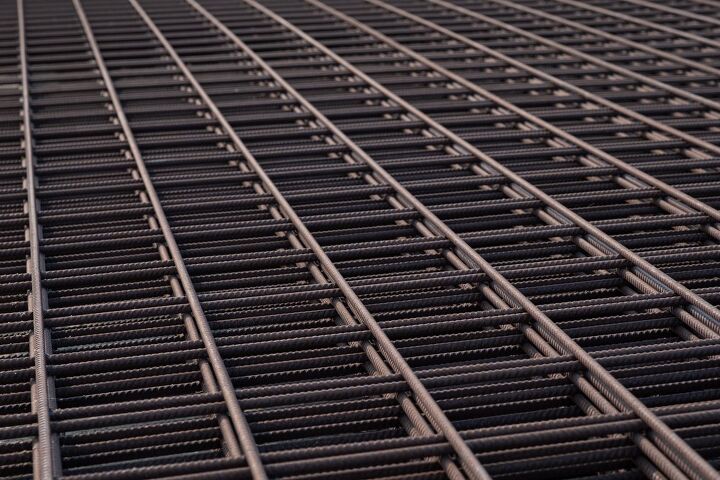






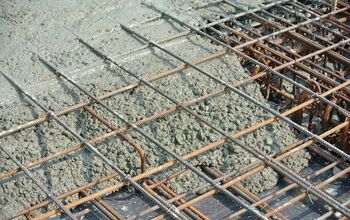
![How Much Does A Vinyl Fence Cost? [Pricing Per Linear Foot]](https://cdn-fastly.upgradedhome.com/media/2023/07/31/9077200/how-much-does-a-vinyl-fence-cost-pricing-per-linear-foot.jpg?size=350x220)
![How Much Does Mudjacking Cost? [Price Per Square Foot]](https://cdn-fastly.upgradedhome.com/media/2023/07/31/9075064/how-much-does-mudjacking-cost-price-per-square-foot.jpg?size=350x220)
